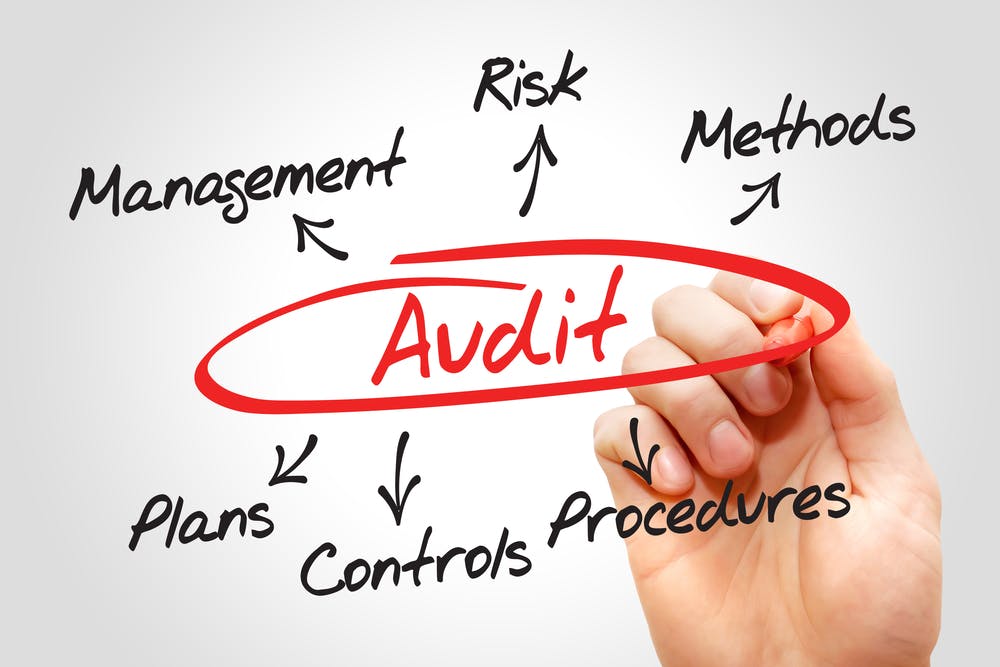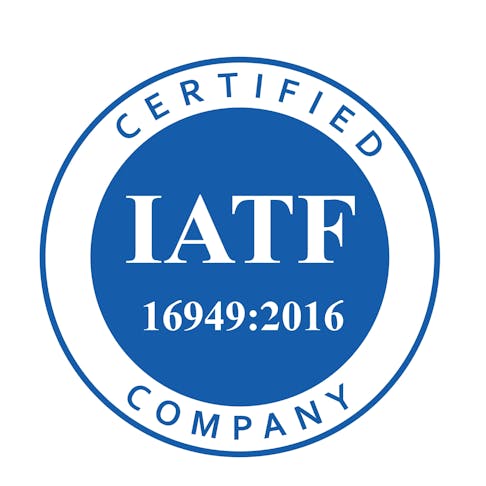To keep standards aligned and of a certain quality within the automotive industry, you can look to the International Automotive Task Force (IATF). This organization keeps frameworks in place using the ISO 90001 quality management system to ensure you can find the same level of quality across the board. If you’re involved in the industry—or those related—you might be wondering about the types of certifications and accreditations you need. We’ll go into detail about exactly what this particular certification is and why.
What Is an IATF16949 Certification?
This specific framework distills information and useful points from the ISO 90001 standard into a set of guidelines that are useful for automotive-specific manufacturers and companies. The IATF 16949 spans an impressive range of topics and is one form of a quality management system that doubles down on creating consistency, safety, and quality across automotive products. It differs from systems like TQM and Six Sigma as those two focus on continuous improvement and statistical analyses.
What Are Quality Management Systems?
A quality management system (QMS) is a system that records the responsibilities, processes, and procedures required for meeting quality objectives. Quality management systems help organizations meet customer and regulatory requirements for their industry.
IATF 16949 is just one form of quality management system based on ISO 9001. Both 16949 and 9001 systems are standardized quality management systems. However, others like total quality management (TQM), continuous quality improvement (CQI), and Six Sigma serve similar purposes. ISO 9001, along with all its subsidiaries such as IATF 16949, are standardized frameworks for regulations. Whereas TQM focuses on measuring and controlling the process of continuous improvement, CQI focuses on the end result of quality improvement rather than the process. Six Sigma, meanwhile, is a data-based system that uses statistics to measure, analyze, and improve quality.
What Industries and Companies Is IATF Relevant For?
This certification is built for any company that’s involved in manufacturing automotive products. While it’s not necessarily required or enforced, you might find that suppliers, contractors, and customers won’t want to collaborate or work with you if you aren’t registered and adhering to these quality standards.
Similar Standards
The IATF 16949 has some similarities to a few other types of standards and certifications. For starters, the ISO 90001 is extremely similar because the IATF drew on this standard for formulating an automotive-specific version. You may also come across the TS 16949, which was the temporary placeholder for the IATF 16949 as it was being put together.
Types of IATF 16949 Certifications
Certification for IATF 16949 is a binary system. A company can either be certified or not; there are no variations. When IATF 16949 certification is awarded, it signifies that the organization has met the requirements set out by the standard. Adherence to the requirements proves a company’s ability and commitment to limit defects in the products and thus also reduces waste and wasted effort.
What Are the IATF 16949 Audit Criteria?
Going through the IATF process involves a couple of audits, one that’s internal and one that’ll be done through an external party. First, you’ll want to be aware of the audit criteria. It’ll vary based on the company you have, but the criteria will be pulled from seven sections from the IATF 16949 standards and often include the following:
- Organizational context: This looks at what stakeholders need and require.
- Leadership: This asks senior employees to show commitment and responsibility for practicing, encouraging, and documenting their quality management systems and policies.
- Identification of risk and opportunity: This takes a look at what preventative measures and contingency plans you have in place.
- Support: This reviews what support systems and infrastructure you’ve set up for staff, the environment, and how that’s communicated and taught.
- Operational requirements: This will analyze what you’re doing in terms of planning, design, purchasing, and manufacturing — this is usually the area many companies must adjust in order to meet standards.
- Performance and evaluation: In this portion, customer feedback will be taken into consideration, too, as well as the monitoring of your manufacturing practices.
- Continuous improvement: Once the first audit is done, others will likely take place and the expectation is that your company will shift to uphold standards and continuously improve.
The IATF Audit and Accreditation Process
The following steps are a general overview of what you can expect from beginning to end of an audit, though it changes based on your company:
- First there will be an opening meeting, where the auditor will go through your company’s quality objectives and share with you the upcoming audit schedule. This process takes around two weeks, but varies based on how large or small the company is.
- Then the actual audit will take place. Auditors will compare your organization’s quality management system to that of the IATF 16969 and make sure that all departments are aligned. You’ll get a good idea of where you’re doing well and where your company needs to improve.
- Once the audit finishes, there will be a closing meeting. This is when the auditor can share improvements that need to be made and any next steps you can take in order to successfully get accredited. This will be documented, too, in a report that senior management can work through together. After all steps are completed and your company makes improvements, another audit may take place and accreditation can happen.
You can see the sections you can likely expect from an IATF 16969 audit in the following illustration.

IATF Audit and Accreditation Process.
Image Credit: Shutterstock.com/dizain
What Are the Benefits of IATF 16949 Certification?
There are several advantages to having this accreditation under your belt, including the following:
- Credibility: Other organizations and suppliers will recognize the accreditation, which gives your company more credibility and trustworthiness.
- International recognition: This is a worldwide accreditation, therefore it becomes much easier to work with international partners.
- Customer satisfaction: The quality of IATF 16949 products tends to lead to happier buyers.
- Streamlined processes: With a set of guidelines to follow, processes feel less convoluted and more effective.
- Evidence for decision making: Thanks to the help of data, you’ll be able to make better-informed decisions.
- Continual improvement: When processes are meant to continuously improve, you create a culture that’s dedicated to doing so.
What Accrediting Body Issues IATF 16949 Certifications?
While it’s easy to think that the IATF also conducts the audits and accrediting you need, that’s not actually the case. This gets done through a third party, often of your choosing, but a good rule of thumb is one that is accredited by another body called the Committee on Conformity Assessment (CASCO), which keeps competence in check. One of the most popular and well-known options is the British Standards Institution (BSI). Outside of BSI, when you’re looking for an accrediting body, it should have the following requirements:
- Education recognized by IATF
- Three years practical experience and two years of quality assurance experience
- Performed eight first or second-party automotive audits in the last three years
- Have ISO 10011 qualifications
- Have taken an IATF auditor qualification course
Similar Certifications and Accreditations to IATF 16949
IATF 16949 is the standard used to apply the ISO 9001 quality management system specifically to the automotive parts industry. Therefore, ISO 9001 has a very large amount of overlap with IATF 16949. IATF 16949 is also extremely similar to TS 16949 because it was derived from the older TS standard in 2016. TS 16949 was a temporary standard written to provide guidance on how to apply ISO 9001 to the automotive industry while IATF 16949 was being written. The ISO applied feedback regarding TS 16949 to drive the changes when creating its replacement.
How Xometry Can Help
You can have peace of mind knowing our company is IATF 16949 certified, and our team is more than happy to help automotive manufacturers with creating components. We offer services that come in handy for these types of businesses, including on-demand manufacturing, automotive injection molding, or automotive metal stamping services.
Disclaimer
The content appearing on this webpage is for informational purposes only. Xometry makes no representation or warranty of any kind, be it expressed or implied, as to the accuracy, completeness, or validity of the information. Any performance parameters, geometric tolerances, specific design features, quality and types of materials, or processes should not be inferred to represent what will be delivered by third-party suppliers or manufacturers through Xometry’s network. Buyers seeking quotes for parts are responsible for defining the specific requirements for those parts. Please refer to our terms and conditions for more information.


